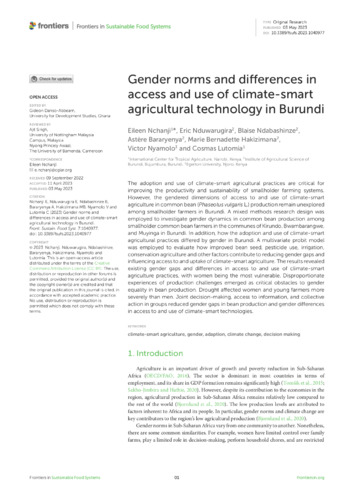Gender norms and differences in access and use of climate-smart agricultural technology in Burundi
The adoption and use of climate-smart agricultural practices are critical for improving the productivity and sustainability of smallholder farming systems. However, the gendered dimensions of access to and use of climate-smart agriculture in common bean ( Phaseolus vulgaris L.) production remain unexplored among smallholder farmers in Burundi. A mixed methods research design was employed to investigate gender dynamics in common bean production among smallholder common bean farmers in the communes of Kirundo, Bwambarangwe, and Muyinga in Burundi. In addition, how the adoption and use of climate-smart agricultural practices differed by gender in Burundi. A multivariate probit model was employed to evaluate how improved bean seed, pesticide use, irrigation, conservation agriculture and other factors contribute to reducing gender gaps and influencing access to and uptake of climate-smart agriculture. The results revealed existing gender gaps and differences in access to and use of climate-smart agriculture practices, with women being the most vulnerable. Disproportionate experiences of production challenges emerged as critical obstacles to gender equality in bean production. Drought affected women and young farmers more severely than men. Joint decision-making, access to information, and collective action in groups reduced gender gaps in bean production and gender differences in access to and use of climate-smart technologies.

